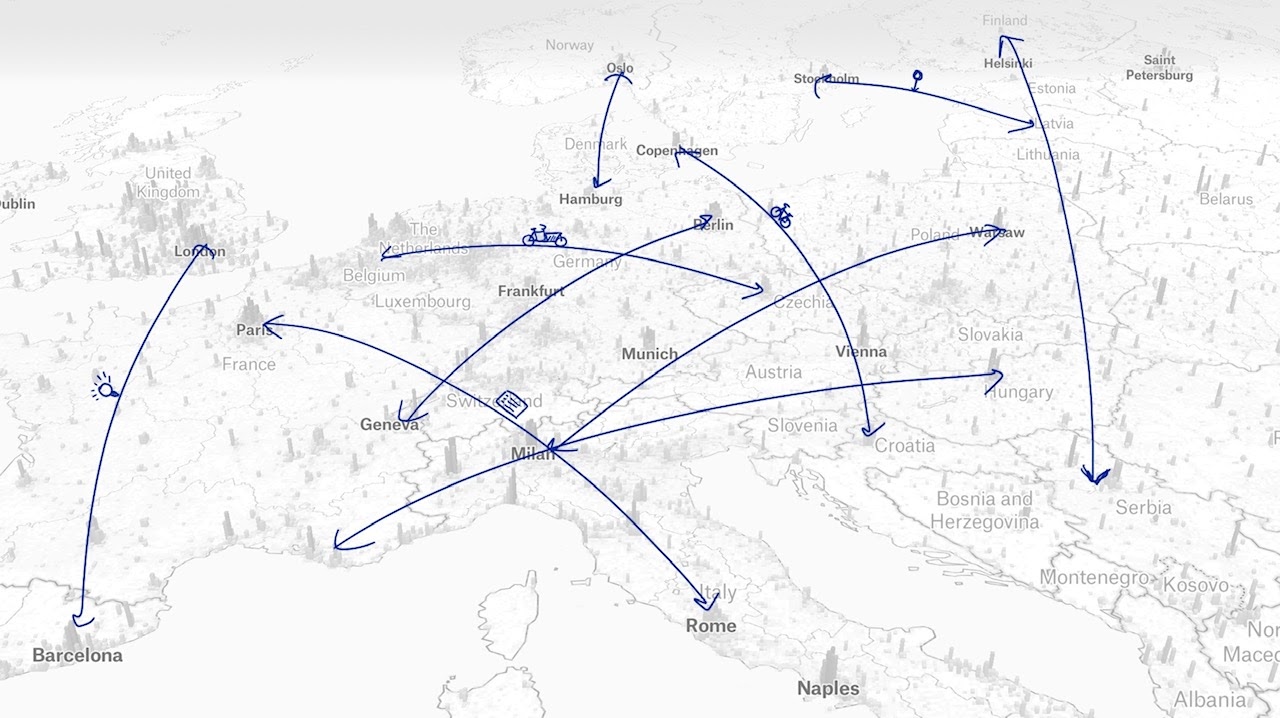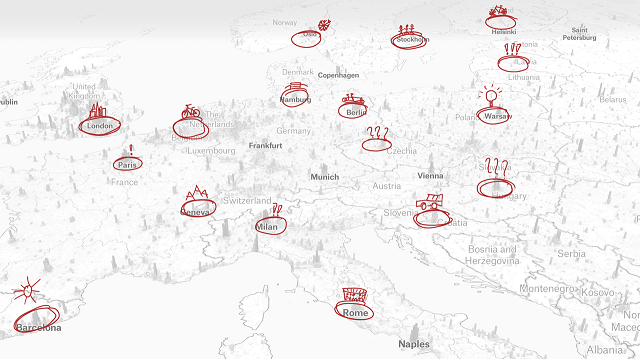
Urban Mobility Erasmus: improve cycling policy through creative knowledge exchange
Urban Laab takes second place at the European Cyclists’ Federation’s inaugural Hackathon, organised in association with the European Institute for Innovation and Technology’s (EIT) Urban Mobility department. Their proposed solution, Urban Mobility Erasmus (UME), will inspire creative cycling policies by allowing city officials to gain first-hand experience in foreign urban cycling policy.
It is an idea that is distinct. We all know that there is so much experience all over Europe, but it is unequally distributed. So why shouldn’t we make it possible to share this?
- Henk Swarttouw, ECF Vice-President & Hackathon Jury Member
It can be said that great creativity requires great inspiration. This is certainly the belief of the Urban Laab team, whose proposed solution impressed the jury at the first ever ECF Hackathon on November 13th, 2020.
As explained by team members Roman Meliška, Vojtěch Benedikt, Marek Lahoda, and Lubomir Fridrich, often the biggest barrier in implementing great cycling infrastructure is a lack of imagination in convincing people that cycling is a viable transport mode. In response to this, the UME programme will incentivise mayors and city officials to undertake internships in other European cities, allowing them to gain first-hand experience in effective cycling infrastructure and policy implementation. This focus on experiential learning differentiates UME from other, more technically focused ideas in urban mobility, encouraging simpler solutions through information exchange.

Each internship would last from one to eight weeks. During this time, participants would be immersed in the host city’s cultural, political, and legislative backgrounds. The UME intends to create a European database of cities interested in the exchange of urban mobility experience. This database will ensure a systematic approach for EU countries looking to broaden their access to knowledge and motivation.
Credits will also be given to participants for every individual internship undertaken. These credits would later be viewed as advantageous in EU subsidy distribution. As well as this, the UME template can be utilised by other important sectors in policymaking, such as environment and education.
The Urban Laab team is currently working with ECF to further develop the UME. The aim is to propose the UME to the European Commission, though they emphasise that it can also be run by other institutional bodies, such as NGOs or international consortiums. To find out more about UME, please click here.
You can also read more about ECF's first ever Hackathon here, as well as our 3rd place runners-up, RD Cycle Solution, by clicking here, and 1st place winners, Cycle AI, by clicking here.
The entire hackathon was an amazing experience, very well organized, smooth and friendly. We learned from other teams and we came out as the runner up, so all thumbs up! It was also encouraging to see the dedication of people like Jill, Henk or Piotr to find the time in their busy schedule for the participants.
– Urban Laab
As we enter the new year, more funding is due to be made available for cycling from both the European Commission and the European Investment Bank. Therefore, it is important that innovative ideas which encourage more cycling are showcased and promoted. We at ECF are committed to doing exactly this and after the great success of our first ever Hackathon, we are excited to do more to ensure that our cities continue to include more cycling!
Regions:
Contact the author
Recent news!
Upcoming events
Contact Us
Avenue des Arts, 7-8
Postal address: Rue de la Charité, 22
1210 Brussels, Belgium









